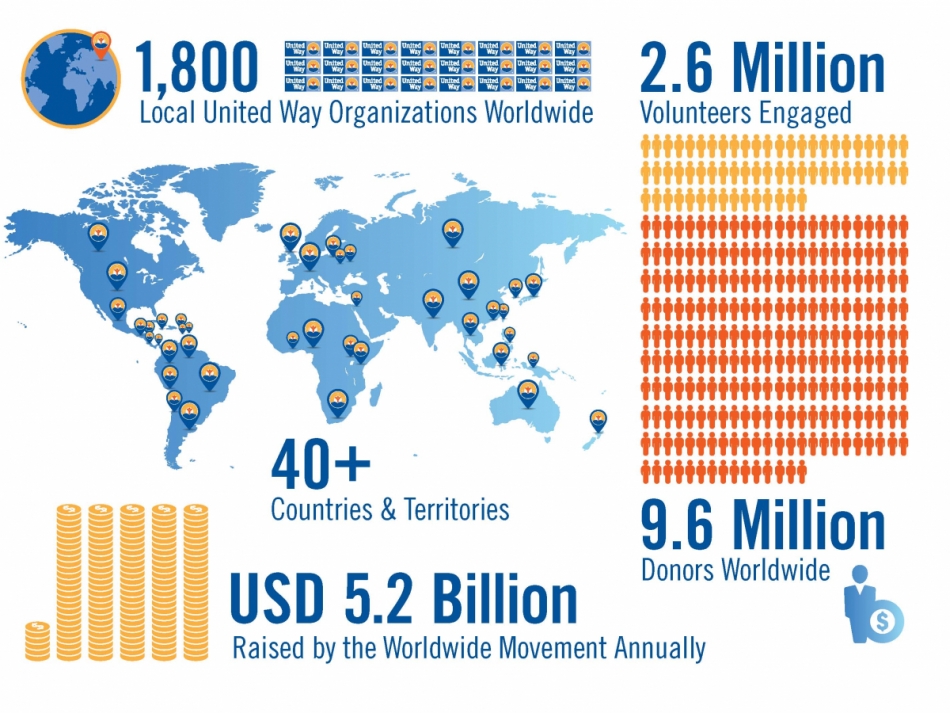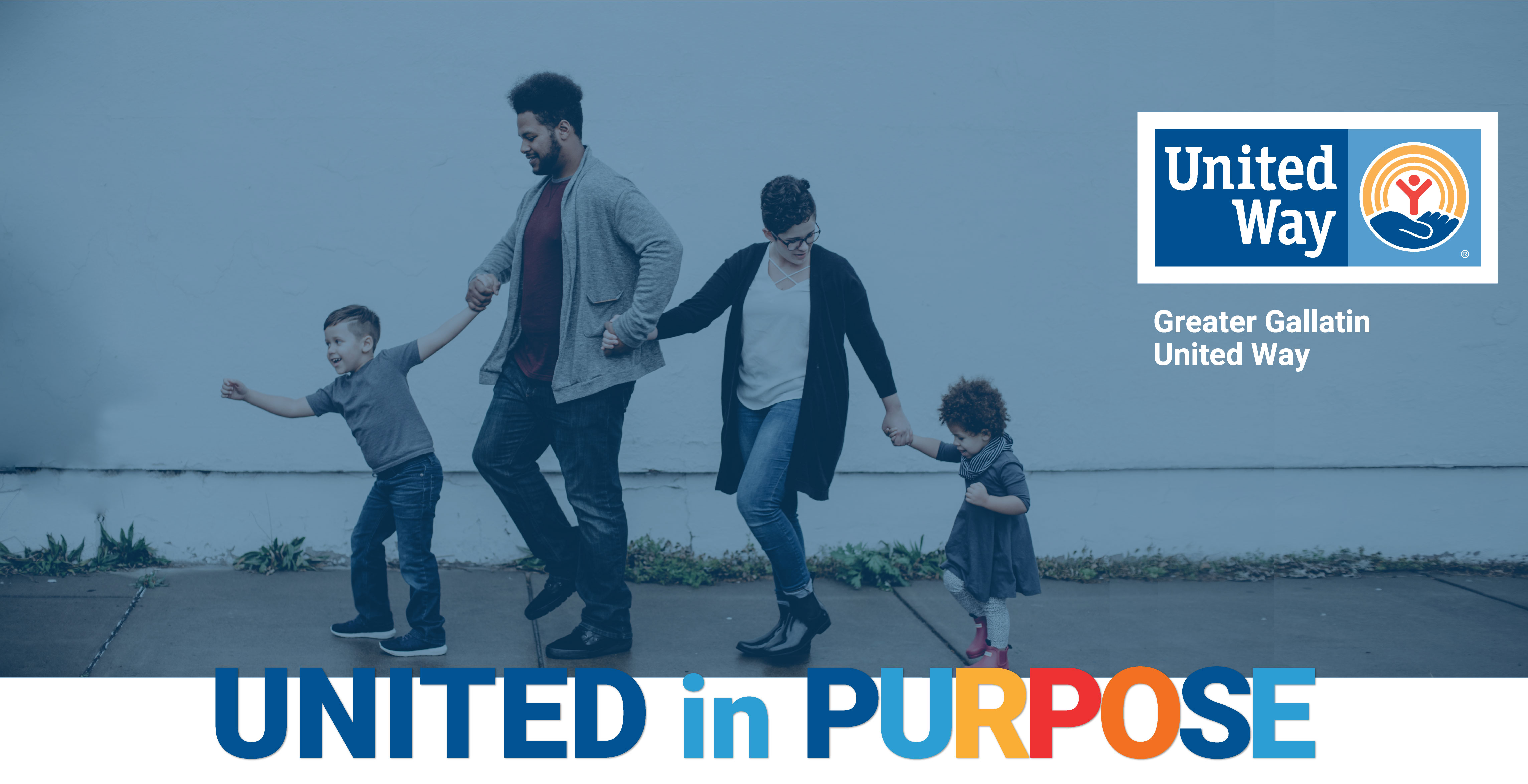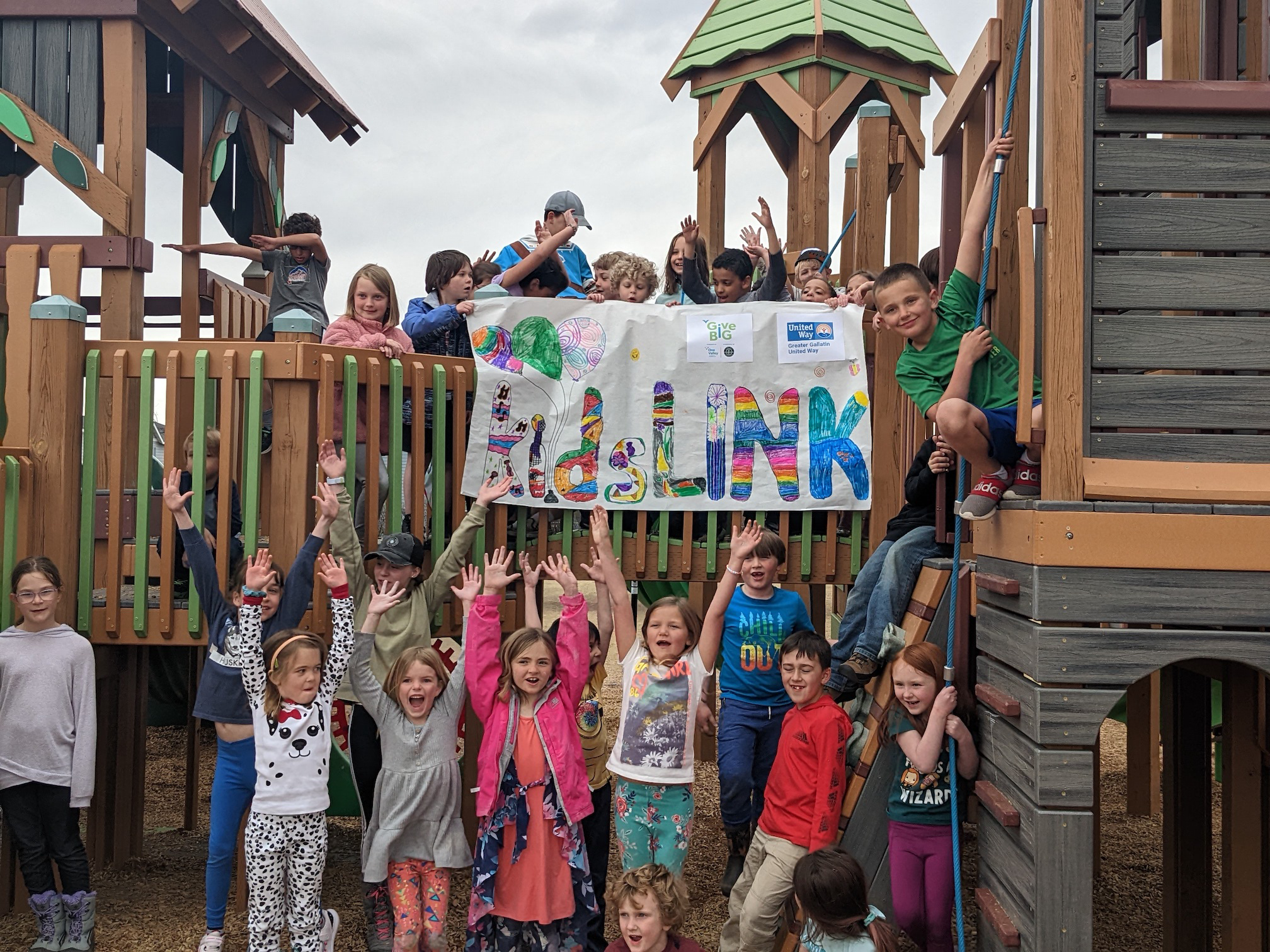In the late 19th century the invention of the Monopoly Game was underway. At about the same time the concept of united giving evolved. Businesses wanted a way to collectively give their philanthropic dollars to an organization that represented them in helping the poor – Monopoly’s community chest card. Following World War II, as much of our country's workforce moved into cities, the concept of donating through payroll deduction was introduced, giving workers a convenient and simple way to help support the poor.
1950s PSA Video
United Way of Gallatin County (original name) was established in 1978. The first board meeting was held on September 14, 1978 after the Bozeman Chamber of Commerce hosted public comment on the concept of a centralized philanthropic organization for our community. Members of the Chamber volunteered as board members, actively recruited board members, raised funds, wrote by-laws, and drafted the Articles of Incorporation. Some of these far-sighted individuals included Jerry Cashman, Joe Billion, Gary Sisson, Gary Tschake, Bob Planalp, and many others. Within a few months, Torly Aasheim was hired as temporary executive and during his abbreviated tenure he brought tremendous energy and connections to keep the organization alive. In order to pay the bills during the first year, the board borrowed a short-term loan of $3,000.
As the idea of collective giving took hold in the business community, the board members persisted in advancing the United Way. By 1980, a $120,000 campaign goal was set, resulting in 18 local organizations receiving grant awards in 1981. In late 1984, Board Chair, Joe Billion, noted in the minutes the adoption of a budget that included the potential for purchasing a computer, if enough funds were raised.
In 1988, Carol Townsend joined the board, representing Patagonia. At that time, the board had 30 members with diverse representation across business and government sectors. In 1992 the board of directors sought to diversify funding beyond the annual campaign. $6,201.20 in donations from the board and community members established an endowment fund. The board also began to reach out to retirees and those unable to give through employee payroll deduction for support.
A 1997 community needs assessment identified specific issues demanding attention. United Way of Gallatin County became bolder and stronger and established an $8,000 "venture grant". The grant provided the avenue for rural communities to voice their needs and to become part the solution. As a result, the first afterschool program, known today as Greater Gallatin United Way kidsLINK Afterschool, was established to support working families in Three Forks, MT.
Joan Rudberg retired as the Executive of United Way of Gallatin County in early 1995. Another executive was hired for a short-term. In 1996 Carol Townsend was selected as Executive. Access to affordable healthcare was a prominent issue in 1997. United Way of Gallatin County saw the need to make mammograms, a lifesaving detection procedure, available to all women. United Way of Gallatin County approached Bozeman Deaconess Hospital to partner to establish the Mammogram Project, which provides mammograms to underinsured and low-income women.
In 2000 rural communities and school districts were pleading for afterschool programs similar to that of Three Forks. United Way of Gallatin County submitted their first grant to Mountain Sky Guest Ranch Fund (known today as AMB West Philanthropies) to help expand afterschool programs to other rural communities.
The name Greater Gallatin United Way (GGUW) was adopted in 2003 to better reflect the region served - - Gallatin, Madison, Meagher, and Park Counties, with a small portion of Sweet Grass County.
Through a business model of transparency and accountability, GGUW was better able to answer, "What did my donation do? What difference did it make?" The board made "trust" a priority to ensure that donors were confident in where and how their dollars were being invested.
The board also recognized that without many partners working together in a united effort, solutions to issues affecting health, education and financial stability might never effectively be addressed. Beyond investing time and money, the need for an organization to lead and convene conversations became necessary. GGUW convened Success By 6, a collaboration of multi-sector partners including, MSU Dept. Of Education, THRIVE, MSU Early Childhood, Community Health Partners, Gallatin City/County Health Department, area school districts, Child Care Connections and other organizations in response to so many children not entering school ready to learn. The focus was on forming a framework for planning and implementing future work to support a “whole child” approach to education, focusing on both cognitive skills and the child’s social and emotional development.
In 2010 in recognition of the value of GGUW's work in leading and convening, the Gilhousen Family Foundation shifted their $100,000 annual campaign gift to a restricted grant. The annual grant paid overhead expenses, which meant that more of every dollar could be directly invested into local efforts to improve lives. GFF continues to support GGUW today.
In 2010, as part of community early childhood discussions, a joint grant application was submitted to MT Dept. of Public Health and Human Services (MT DPHHS) Early Childhood Services Bureau with GGUW as the lead agency. This community was one of seven in the state to receive a Best Beginnings grant for $135,000 over a two-year period to conduct a comprehensive assessment of early childhood services in our region. At the same time MT DPHHS Public Health Bureau was awarded a grant to conduct similar work. The state combined the two funds and the Best Beginnings Coordinator began working closely with the Gallatin County/City Health Department to develop a work plan for collecting and analyzing the data. Strategic planning meetings were held with over 30 community partners working together to advance the project. GGUW's Executive Director, Carol Townsend, was appointed to the Governor’s Best Beginnings Council. In 2013, a comprehensive needs assessment was delivered to the community.
September 2014, our community received a grant through the Montana Project LAUNCH Initiative (MT-PLI). This $800,000 per year, five-year federal SAMSHA grant received by Montana Department of Public Health and Human Services (DPHHS) with the goal of engaging Montana’s early childhood partners to improve systems and access to mental health services for young children and families. GGUW, ECCC, Childcare Connections, Gallatin Mental Health Center, Thrive, Early Childhood Project, Gallatin City-County Health Dept. and Community Health Partners were collaborative partners that piloted evidence-based practices in Gallatin and Park Counties.
In 2012, GGUW, the largest afterschool program provider in the state, helped spearhead a statewide initiative for out-of-school time programming, the Montana Afterschool Alliance (MTAA). GGUW lead and became the fiscal agent for MTAA, which is an established statewide network of key stakeholders who champion for quality, accountability, sustainability, and success of all out-of-school time programs in Montana. Rural Dynamics, Inc. became the fiscal agent for MTAA in 2017.
In 2015 Billion Auto Group’s donations to GGUW exceeded $1M! Billion Auto Group's Employee Charitable Giving Campaign is one of the strongest campaigns in the area. GGUW is thankful to be part of such a caring community and appreciates the many other significant investors including Bozeman Health. Bozeman Health invested $50K annually into GGUW to improve education, health and financial stability for everyone in our community.
In 2015 Carol Townsend, President and CEO, retired after 18 years. She helped build a solid foundation for GGUW to flourish for years to come. Danica Jamison was hired in 2015 as President and CEO. Under Danica’s leadership, the organization underwent a review and rewrite of its strategic plan based on United Way Worldwide’s Network-Wide Strategy and “5 Bold Plays” (key actions). UWW's tried and true formula has worked for over 130 years - - bringing whole communities together to apply comprehensive local solutions to the most important problems. At the same time, UWW recognized the world of philanthropy was significantly changing and the organization and the 1800+ network of local United Ways needed to adjust to these new realities to continue to lead. The new strategy and key actions powers UW’s efforts to create a world where everyone has the opportunity to live a better life.
In 2018, GGUW unveiled a revised 2018-2023 Strategic Plan that utilizes the strength of UWW and to integrate UWW’s mission and goals into its efforts to solve confirmed social needs in the communities it serves. The plan guides GGUW to provide inspirational leadership to mobilize people and resources to achieve long-term positive results in the following four community impact areas: Basic Needs, Behavioral Health & Mental Well-Being; Child & Youth Success, and; Senior Stability. GGUW envisions local communities where all individuals and families achieve their full potential through education, income stability, and healthy living.
In 2016, GGUW established The Resilience Project, an initiative that aims to build a healthier and more resilient community through a shift to a new collective mindset about behavioral health and mental well-being and how to improve whole-person health.
Since 1978 GGUW has invested over $15M through the Community Impact Fund into local programs and services focusing on health, education and financial stability. GGUW also invests funds raised through grant awards and other efforts into collaborative work, pilot projects, and programs including Early Childhood Community Council, New Early Child Care Provider Fund, Greater Gallatin Homeless Action Council and others. In addition, GGUW raises and invests over $1.2M annually into kidsLINK Afterschool Program which reached 32 sites across four counties in 2019.
In 2019, GGUW launched Dolly Parton’s Imagination Library to Gallatin County to improve early literacy and to ensure children have a strong start and a strong foundation for success in school, work, and life.
GGUW continues to be the community leader in collective impact-driven work. We believe that real long-term change is best generated by working collectively through a common agenda. GGUW fights for the health, education and financial stability of every person in Gallatin, Madison, Meagher and Park Counties.



